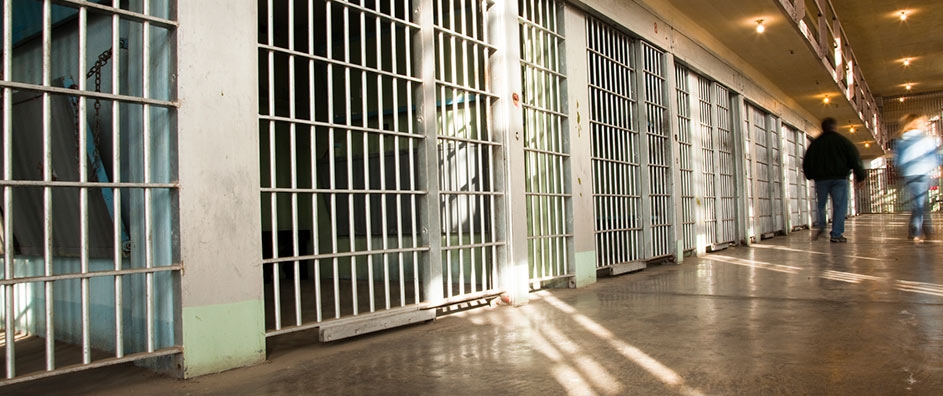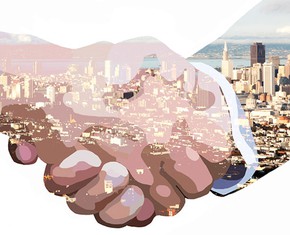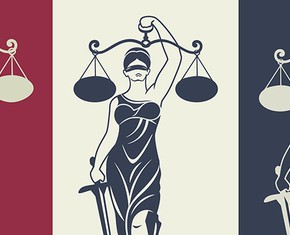The views expressed in our content reflect individual perspectives and do not represent the authoritative views of the Baha'i Faith.
While there is a soul in prison I am not free. ― Eugene V. Debs
There are more African Americans under correctional control—in prison or jail, on probation or parole—than were enslaved in 1850, a decade before the Civil War began. – Michelle Alexander, The New Jim Crow.
Baha’u’llah passed forty years of His life in prison and exile in order that He might upraise the banner of the oneness of the world of men. – Abdu’l-Baha, The Promulgation of Universal Peace, p. 36.
My country—the United States of America—has the highest rate of imprisonment in the world. Why?
For years I have tried to answer that question for myself, by researching the history of incarceration, the reasons for it, and the policies that lead to it. Entire books have been written on the subject—one of the best is Michelle Alexander’s The New Jim Crow: Mass Incarceration in the Age of Colorblindness—so I won’t try to revisit all that research and information here in this brief essay. Instead, I’ll just cite a couple of very telling statistics:
- The United States has about 4.4% of the world’s population—but it houses almost 25% of all the world’s prisoners.
- For every 100,000 people in the U.S., 716 are currently behind bars.
- Compared to similar cultures like the European Union’s rate (134 per 100,000 people); or Canada’s (188/100,000); or Australia’s (130/100,000) or Japan’s (51/100,000), the U.S. incarceration rate ranks far, far higher than any comparable country.
- Many experts say the United States has the highest incarceration rate in human history.
Because the crime and victimization rates don’t differ all that much between Europe, Canada and the U.S., most experts cite two major factors that explain why the U.S. imprisons so many people: racial disparities and a lack of social services:
The rate of imprisonment in the United States was pretty much flat from the 1920s to the early 1960s, and it even declined a bit until the early 1970s. But then it shot up almost fivefold, and today more than two million Americans are in jail, the highest incarceration rate on the planet. That works out to three-quarters of a percent of the entire population, and a much larger percentage of young men, especially African Americans… The United States imprisons far more people than it should, with disproportionate harm falling on African American communities who have been stripped of large numbers of men. – Steven Pinker, The Better Angels of Our Nature, pp. 121-123.
The network of social service programs is less developed in the United States than in comparable countries. That means the United States relies more on jails and prisons for people who otherwise would have been diverted to non-institutionalized care (i.e., people with mental health or substance abuse issues, the homeless, the youth). – Michele Ye Hee Lee, The Washington Post, July 7, 2015.
If you ever have the opportunity to visit the largely-forgotten people in prison in the United States—and I recommend it highly—you’ll see what these experts mean. Because the legal system mostly imprisons the poor, and rarely incarcerates wealthy people, and poor people are disproportionately people of color, the U.S. prison population skews heavily toward African Americans (2,207 per 100,000) and Hispanics (966/100,000) as compared to whites (380/100,000). This, despite the fact that white people make up the vast majority of the overall population (64%); and also commit the majority of crimes.

Also, many American prisons—now run by for-profit corporations—have an added incentive to incarcerate, and to lobby for longer and more draconian prison sentencing policies.
So what do the Baha’i teachings recommend we do to address these difficult issues, and to deal with the crippling impact of racism on our culture and our legal system? You’ll find a significant focus on eliminating racism and on the issues of crime and punishment in the Baha’i writings, but I’ll try to summarize here:
The body politic, however, must punish the oppressor, the murder and the assailant, to dissuade and deter others from committing similar crimes. But that which is essential is to so educate the masses that no crimes will be committed in the first place… – Abdu’l-Baha, Some Answered Questions, newly revised edition, pp. 309-310.
Notice how Abdu’l-Baha recommends punishing major crimes like murder, but then immediately suggests education as an even more essential means of prevention? The Baha’i teachings have a clear preference for education, even post-imprisonment. For example, Abdu’l-Baha wrote this letter to a Northern California Baha’i attempting to help prisoners in the notorious San Quentin Prison:
Kindness, training and education extended to prisoners is exceedingly important. Therefore… this praiseworthy deed is highly acceptable. Assuredly persevere. Convey on my behalf to the two prisoners in San Quentin the utmost kindness, and tell them: “That prison in the sight of wise souls is a school of training and development. Ye must strive with heart and soul that ye may become renowned in character and knowledge.” – Abdu’l-Baha, Selections from the Writings of Abdu’l-Baha, p. 116.
So the Baha’i teachings recommend addressing the root causes of crime first—by educating everyone rather than attempting to jail and imprison our way out of the problem:
…if the masses were educated so that knowledge and learning increased day by day, understanding was broadened, perceptions were refined, morals were rectified and manners reformed—in a word, that progress was made with respect to every degree of perfection—then the occurrence of crime would subside… As ignorance is the root cause of crime, the more knowledge and learning advance, the less crime will be committed…
Therefore, the body politic must seek to prevent crimes from being committed in the first place, rather than devise harsh punishments and penalties. – Abdu’l-Baha, Some Answered Questions, newly revised edition, p. 313.
Next: How to Escape from Prison
You May Also Like
Comments

















March 24 her review of "Incarceration Nations", by Baz
Dreisinger. It is about the corrections
practices of a few other countries.
I don't know if they're common globally, or how well they have worked out, but they do seem much
more "corrective" than punitive,
enough to shock an American!
Stephen, the "zero-tolerant" schools put more students in contact
with the authorities, and put them
at more risk by removing the choices
education would have given them.
It seems this, some "broken ...windows" excesses, and mass
locking up for non-violent crime
are three parallels. I believe there
was probably good reasoning at
the time for each, but we must
judge by results.